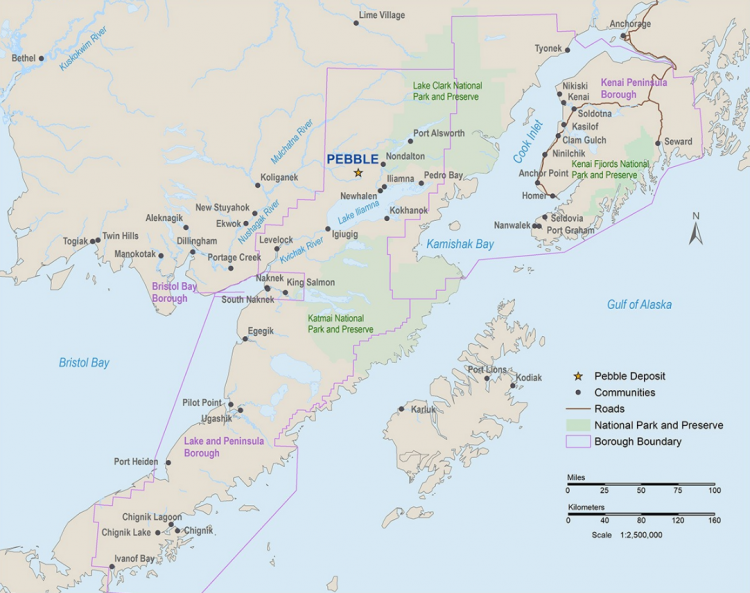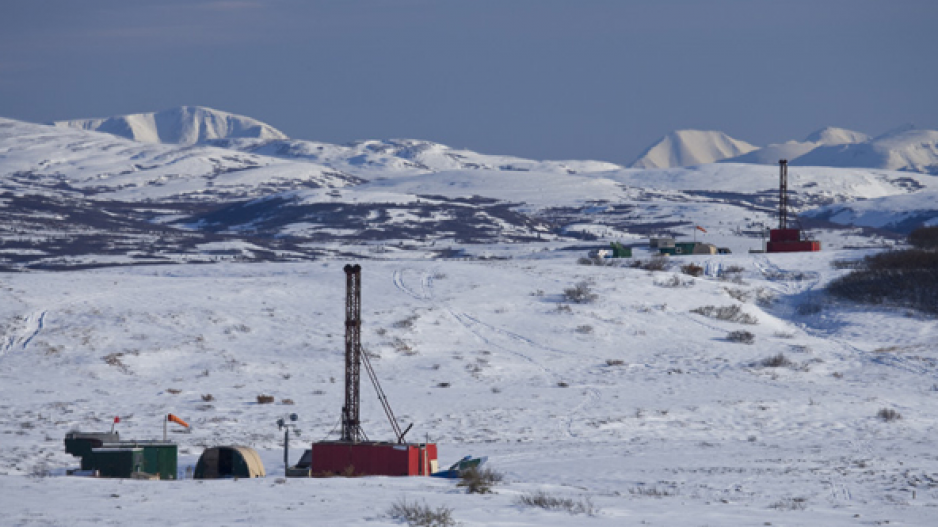Shares in Vancouver’s Northern Dynasty Minerals Ltd. (TSX: NDM, NYSE:NAK) were down eight per cent this morning, following a final determination from the Environmental Protection Agency (EPA) on the company’s Pebble mine -- one that appears to effectively kill the project.
Northern Dynasty is now vowing to fight the decision in court.
“Today’s action by the EPA to preemptively veto the proposed Pebble Project is unlawful and unprecedented," said John Shivley, CEO of the Pebble Partnership, a Northern Dynasty subsidiary.
"This preemptive action against Pebble is not supported legally, technically,or environmentally. As such, the next step will likely be to take legal action to fight this injustice."
Alaskan Governor Mike Dunleavy also is vowing to fight the EPA decision.
“EPA’s veto sets a dangerous precedent," Dunleavy said in a press release. "Alarmingly, it lays the foundation to stop any development project, mining or non-mining, in any area of Alaska with wetlands and fish-bearing streams. My Administration will standup for the rights of Alaskans, Alaska property owners, and Alaska’s future.”
The Pebble project -- said to be the world's largest undeveloped copper-gold deposit -- would be situated in the watershed that drains into Bristol Bay, which is the most important and prolific sockeye salmon system in the world.

Concerns about the impacts on Bristol Bay salmon led to a final determination, released today, by the EPA that essentially prohibits the mine from being built, since it would restrict the disposal of any construction or mine waste within the watershed. And since all mines produce waste rock, it's hard to imagine how the project could be built without being able to dispose of waste rock, which is typically stored in tailings ponds.
The EPA ruling states that “discharges of dredged or fill material for the construction and routine operation of the mine identified in the 2020 Mine Plan … at the Pebble deposit will have unacceptable adverse effects on anadromous fishery areas in the SFK and NFK watersheds.
“Accordingly, the Assistant Administrator for Water restricts the use of waters of the United States within the Defined Area for Restriction… as disposal sites for the discharge of dredged or fill material associated with future proposals to construct and operate a mine to develop the Pebble deposit.”
“Today’s decision may be the most popular thing the federal government has ever done for Alaska,” SalmonState executive director Tim Bristol said in a news release. “Thousands of Alaskans and over a million Americans from across the political spectrum have called for protection of Bristol Bay’s one-of-kind salmon resource from massive open pit mining and today, the EPA delivered.”
Dunleavy has opposed federal intrusion into state affairs over the Pebble mine.
"This proposal is deeply concerning to Alaska," Dunleavy wrote in October 2022 to the EPA's Region 10, after the EPA indicated it would use its veto powers to prevent the mine from being built. "The proposed veto injects EPA into the very heart of Alaska politics."
"The land around Pebble was selected by the state for its mineral potential as part of the process in which Alaskans were granted statehood," Shivley notes. "EPA continues to blatantly ignore the state’s interest in this case.
"The EPA is violating the U.S. Constitution by taking away the state and the project’s legally protected property interests in the mineral rights underlying the land, without any just compensation," Shivley writes.
“EPA’s draconian decision—taken under a Biden Administration that so desperately wants to see domestic development of the natural resources needed to support our Nation’s renewable energy goals—is dumbfounding,” said Alaska Department of Environmental Conservation Commissioner Jason Brune.
"The veto disregards the Alaska Statehood Act, violates the Clean Water Act, and departs from basic scientific methodology," the Alaskan governor's news release states.
"Of particular concern is EPA’s failure to demonstrate why the Army Corps of Engineers was wrong when it reviewed the same scientific data but arrived at the opposite conclusion—that the proposed mine plan 'would not be expected to have a measurable effect on fish numbers or result in long-term changes to the health of the commercial fisheries in Bristol Bay.'"




